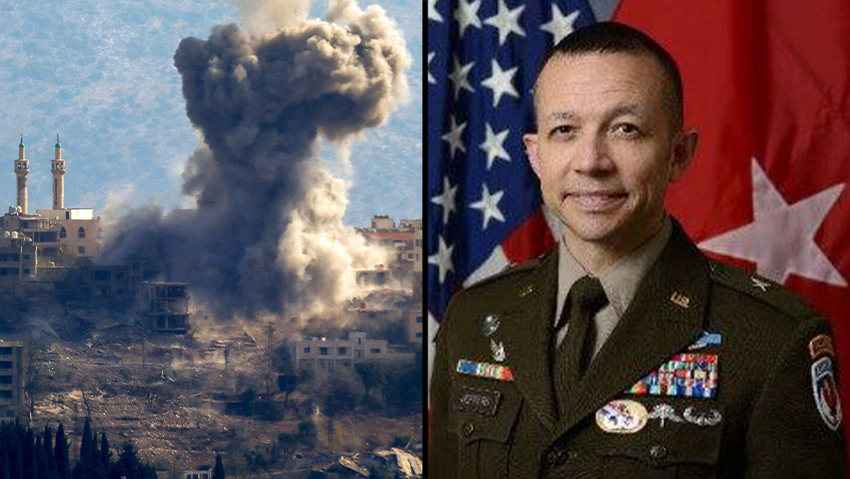Hezbollah’s attention appears to be shifting to Syria as rebel forces make dramatic advances, potentially diverting the terrorist group's focus from violating agreements with Israel to defending Syrian President Bashar al-Assad’s regime.
Israeli officials have characterized the development as a short-term positive, especially given Hezbollah’s recent efforts to challenge the Lebanon cease-fire framework.
2 View gallery


Rebel forces in Aleppo; Syrian President Bashar al-Assad
(Photo: AP Photo/Ghaith Alsayed, רויטרס / Saudi Press Agency/Handout)
In light of the evolving situation, Prime Minister Benjamin Netanyahu convened a special security meeting Friday night to discuss the implications of the Syrian conflict and the enforcement of the Lebanon cease-fire agreement.
“This is something we need to monitor closely to see how it unfolds,” Israeli officials said. “It doesn’t necessarily impact us in the short term, but any instability in a neighboring country could eventually affect us. That said, there may also be opportunities for change here.”
Ynet military analyst Ron Ben-Yishai noted that in the near term, the developments could benefit Israel’s security. Assad, weakened by the ongoing conflict, is unlikely to provoke Israel and may exercise caution in allowing Iran to use Syrian territory to supply Hezbollah. However, Ben-Yishai warned that the longer-term outlook is concerning, as the Sunni rebels are jihadists no less dangerous than the Iranian-backed Shiite groups.
Despite the upheaval in Syria, Hezbollah’s cease-fire violations continued over the weekend. The IDF reported on Saturday targeting a military vehicle in southern Lebanon, near a Hezbollah missile production site, in response to these breaches.
The international enforcement mechanism overseeing the Lebanon cease-fire agreement is expected to ramp up operations later this week. Until then, Israel has maintained aggressive enforcement. “Every violation will be met with significant enforcement, as is currently the case,” a senior Israeli official said.
The enforcement framework is headed by U.S. Maj. Gen. Jasper Jeffers, who previously served as the head of special operations at U.S. Central Command (CENTCOM).
Jeffers arrived in Beirut last Wednesday, coinciding with the cease-fire’s implementation. He co-chairs the monitoring and enforcement mechanism alongside Amos Hochstein, a senior adviser to President Joe Biden who helped broker the agreement. Hochstein will serve as the civilian co-chair until a permanent civilian representative is appointed.
Get the Ynetnews app on your smartphone: Google Play: https://bit.ly/4eJ37pE | Apple App Store: https://bit.ly/3ZL7iNv
The mechanism, managed by the United States, includes the Lebanese Armed Forces, the IDF, UNIFIL (the United Nations Interim Force in Lebanon) and France. Jeffers brings extensive experience from deployments in Iraq and Afghanistan and has received numerous commendations for his service.
Under the cease-fire terms, Hezbollah is prohibited from maintaining weapons south of the Litani River. However, Hezbollah operatives residing in villages in the area may return under the guise of civilians.
Israeli strikes on southern Lebanon targets in enforcement of cease-fire agreement
(Video: IDF)
Meanwhile, the IDF is required to withdraw to Israeli territory within 60 days, during which the Lebanese Army is expected to deploy in southern Lebanon and along the border to prevent weapons smuggling and Hezbollah’s rearmament. Israel has also agreed to enter negotiations over the land border with Lebanon.
The international enforcement mechanism will monitor compliance, while Israel retains the right to act against violations. A side letter from Washington assured Israel of its ability to enforce the agreement unilaterally if necessary.
According to the letter, Israel and the U.S. will share sensitive intelligence on violations, with the U.S. authorized to share some information with the Lebanese government or the enforcement mechanism.
The letter explicitly grants Israel the right to respond to violations in southern Lebanon and address broader threats elsewhere if Lebanon cannot or will not act. Any such actions must be coordinated with the U.S.
Israeli reconnaissance flights over Lebanon will continue for intelligence purposes but are restricted to avoid breaking the sound barrier.






